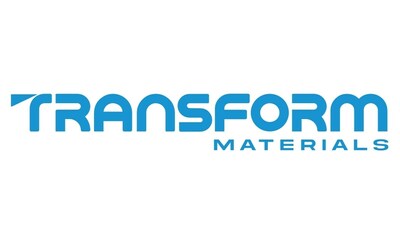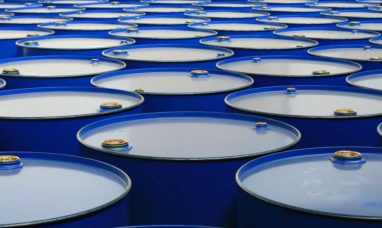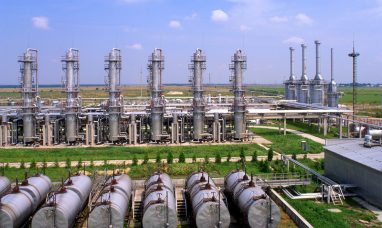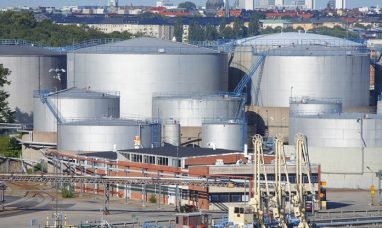Partnership brings together Transform Materials’ innovative technology for acetylene production using plasma, Johnson Matthey’s (JM) acetylene-based VCM technology, and JM’s proprietary catalyst to provide a solution that emits fewer carbon emissions when compared to traditional coal-based processes* to produce the critical vinyl chloride monomer for PVC production
RIVIERA BEACH, Fla., June 12, 2024 /PRNewswire/ — Transform Materials, a leader in the development of clean and sustainable chemical technologies, has joined forces with Johnson Matthey, a global leader in sustainable technologies. Scientists and engineers at both companies are applying their combined expertise with the aim of revolutionizing VCM production through a novel, lower-carbon-emission, mercury-free process.
The collaboration brings together Transform Materials’ advanced technology for producing acetylene from a range of short-chain hydrocarbons and Johnson Matthey’s unique, mercury-free technology and catalyst offering for converting acetylene to vinyl chloride monomer (VCM). Acetylene is typically produced by hydrolysis of calcium carbide and is a critical building block in many chemical processes.
Calcium carbide is produced via an energy-intensive process that uses coal and limestone as feedstocks, while VCM is converted to PVC via a polymerization reaction. Traditionally, mercury has been the catalyst of choice to hydrochlorinate acetylene to monomer VCM. However, with the ratification of the worldwide Minimata treaty, the use of mercury catalysts in new VCM plants is now banned. JM’s proprietary catalyst offers a solution for new and existing VCM plants.
Combined, the Transform and Johnson Matthey technologies create an alternate route to produce PVC with a lower global warming impact* versus traditional methods and without the use of mercury catalysts. This addresses three critical challenges facing the industry:
- A reliance on environmentally harmful products. There are significant environmental drawbacks associated with traditional methods of producing PVC from coal and using mercury catalysts. Through the collaboration between Transform Materials and Johnson Matthey, a wider range of feedstocks can be used to produce VCM from acetylene using JM’s catalyst.
- Facilitating on-purpose, selective capacity growth. Unlike traditional ethylene-based PVC production, the approach offered by these two companies enables producers to selectively increase output due to the direct route via acetylene to VCM without forming major by- and co-products.
- Carbon emissions. During the carbide process, carbon monoxide is generated from the reaction of lime and carbon from coal. This collaboration enables the use of a process route that does not emit these carbon by-products and can result in a lower carbon intensity process when compared to traditional calcium carbide production.*
“Transform Materials is delighted to partner with Johnson Matthey, a company with a rich, 200-year history of innovation and a leader in sustainable technologies,” said Kenn Flessner, CEO of Transform Materials. “The PVC industry is seeking new ways to meet production demands while prioritizing sustainability. This partnership enables us to deliver a cutting-edge solution that allows PVC producers to increase output incrementally without compromising their environmental goals.”
Today’s announcement builds on Transform Materials’ recent market success, which includes the signing last year of an agreement with Denka, a leading Japanese chemicals company, for the construction of a Transform Materials acetylene-hydrogen plant. That plant is under construction and is expected to be commissioned in 2025.
“Our collaboration with Transform Materials significantly enhances our value proposition to PVC producers,” said Alan Ingham, director of global licensing at Johnson Matthey. “By combining our leading hydrochlorination catalyst and VCM technology offering with Transform Materials’ innovative approach to acetylene production, we can now offer PVC manufacturers a truly compelling path to increase production capacity in a more environmentally responsible manner. This partnership aligns with our sustainability goals and positions us to play a key role in driving positive change within the PVC industry.”
* Lower carbon emissions statement is based upon carbon footprint analysis compared to a coal-based carbide technology. It enables a lower global warming potential compared to the conventional carbide process when using the same non-renewable electricity sources from cradle to gate. Contact Transform Materials for further details and verification.
About Johnson Matthey
Johnson Matthey is a global leader in sustainable technologies. For over 200 years we’ve used advanced metals chemistry to tackle the world’s biggest challenges. Many of the world’s leading energy, chemicals and automotive companies depend on our technology and expertise to decarbonise, reduce harmful emissions, and improve their sustainability. And now, as the world faces the challenges of climate change, energy supply and resource scarcity, we’re actively providing new solutions for our customers. Through inspiring science and continued innovation, we’re catalysing the net zero transition for millions of people every day. For more information, visit matthey.com.
About Transform Materials
Transform Materials is dedicated to developing sustainable materials production processes, with a core focus on transforming the ways acetylene is utilized. The company is committed to creating a future where materials manufacturing is aligned with environmental responsibility. Transform’s patented technology and systems are compact and modular, and can scale to match customer needs, whether for large plants or small industrial applications. To learn more, visit transformmaterials.com.
![]() View original content to download multimedia:https://www.prnewswire.com/news-releases/transform-materials-and-johnson-matthey-collaborate-to-enable-lower-carbon-and-mercury-free-alternative-routes-for-pvc-manufacturing-302170248.html
View original content to download multimedia:https://www.prnewswire.com/news-releases/transform-materials-and-johnson-matthey-collaborate-to-enable-lower-carbon-and-mercury-free-alternative-routes-for-pvc-manufacturing-302170248.html
SOURCE Transform Materials LLC

Featured image: Depositphotos © Jewhyte










